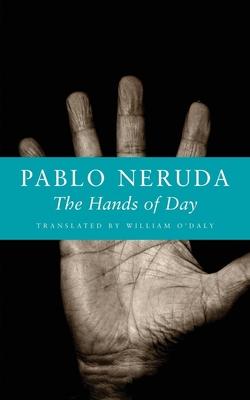Pablo Neruda is one of the world's great poets, and Copper Canyon Press has long been dedicated to publishing translations of his work in bilingual editions.
The Hands of Day--at long last translated into English in its entirety--pronounces Neruda's desire to take part in the great human making of the day. Moved by the guilt of never having worked with his hands, Neruda opens with the despairing confession, "Why did I not make a broom? / Why was I given hands at all?" The themes of hands and work grow in significance as Neruda celebrates the carpenters, longshoremen, blacksmiths, and bakers--those laborers he admires most--and shares his exuberant adoration for the earth and the people upon it.
Yes, I am guilty
of what I did not do,
of what I did not sow, did not cut, did not measure,
of never having rallied myself to populate lands,
of having sustained myself in the deserts
and of my voice speaking with the sand.
Pablo Neruda (1904-1973) was a Chilean poet and diplomat who received the Nobel Prize in Literature in 1971. Recognized during his life as "a people's poet," he is considered one of the greatest artists of the twentieth century.
William O'Daly is the best-selling translator of six of Pablo Neruda's books, including The Book of Questions and The Sea and the Bells. His work as a translator has been featured on The Today Show.
